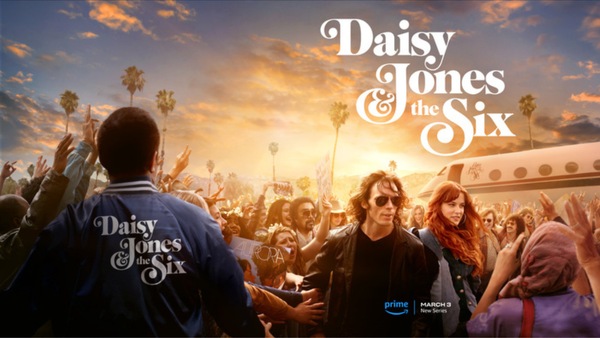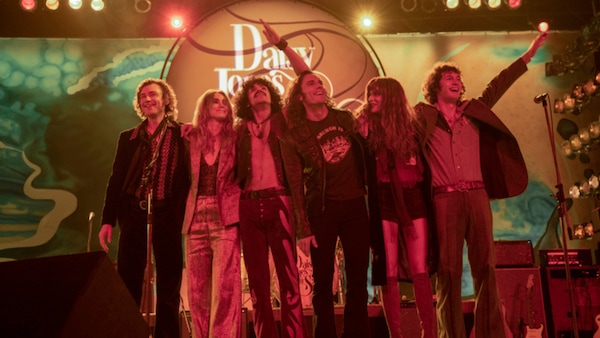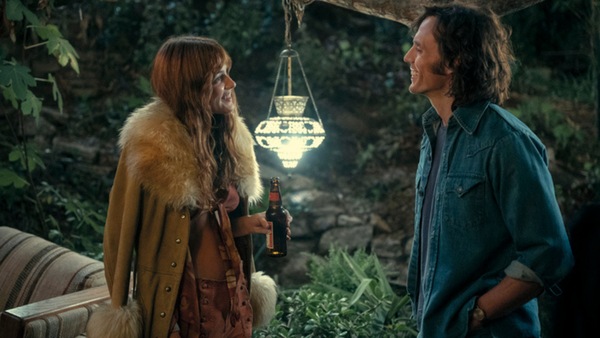Daisy Jones and the Six review: When a 10-episode series should’ve been a two-hour film
The Amazon Prime Original series, adapted from Taylor Jenkins Reid’s eponymous novel, is said to be inspired by the real-life 70s rock band Fleetwood Mac

Last Updated: 02.35 PM, Feb 26, 2024
Story: In the 1970s a ragtag group of young musicians decide to start a rock band. The series follows the band as they go from playing in pubs to releasing hit singles and topping billboards. However, their success comes at a cost, mired with scandals, controversies, and heartbreak.
Review: “It's a long way to the top if you wanna rock 'n' roll”, the title of one of AC/DC’s biggest hits. This was indeed true in the 60s and 70s when anyone with a guitar dreamed of being in a rock band. And staying on top is a far greater challenge than the journey it takes to get there, as sveral bands and rock stars found out over the years. Daisy Jones and the Six attempts to provide a fictionalised account of the lives led by musicians, who are adored across the globe.

The story and the premise of Daisy Jones and the Six is unfortunately nothing audiences have not seen before. Biopics and functional tales of musicians have been around since time immemorial. The films/TV shows that became successful over the years often featured a distinguishing aspect that elevated them. For instance, the Live Aid recreation in Bohemian Rhapsody certainly put the film about Freddie Mercury on a much higher pedestal. It is also worth pointing out that most of the larger-than-life characters lived lives that were at times too controversial even for a film/TV adaptation. This was something several commentators pointed out concerning Sir Elton John’s biopic Rocketman.

The real-life stories of rock stars are often stranger than fiction. This is exactly the reason why Daisy Jones and the Six struggles with its narrative. The characters in the series have toned-down arcs when compared to the actual story of Fleetwood Mac. Therefore, the series has had to rely on cliches and overused tropes to narrate its story. It also frequently reminds its viewers that the ‘70s in the West were defined by sex, drugs, and rock ‘n’ roll. And it was just a few narrative tweaks away from showing the Church’s perspective of rock ‘’n’ roll at the time — that it was “satan’s music".

The 10 episodes are shot in a documentary-style format where the band members talk about the band and the tours in the ‘70s. The primary focus is on the two lead vocalists Billy Dunne (Sam Claflin) and Daisy Jones (Riley Keough). They are shown to tap into their toxic relationship in order to get better inspiration for their songs. There are a few supporting subplots thrown into the mix in the hopes of adding depth to the story. And apart from Graham Dunne’s arc, none of the other stories offers an adequate amount of intrigue to keep one invested. It is by no means a reflection of the performances by the cast; Sam Claflin and Riley Keough deliver excellent performances, bringing out the idea of flawed geniuses to the fore.

Despite a few renditions of a few excellent tracks, the story lacks the gravitas to warrant a 10-episode series. It could’ve worked better as a film, considering the lack of compelling subplots to keep pace with the overall narrative. Whereas, other characters such as Suki Waterhouse’s Karen Sirko and Will Harrison’s Graham Dunne are relegated to the background at times. In other words, the focus on an egotistical and sexually charged rivalry between the two vocalists is simply inadequate to carry the weight of the series. And while there is plenty of exposition on Billy and Daisy’s personal struggles early on in the series, their respective character development is convoluted.

Verdict: Daisy Jones and the Six does have its moments to shine in the spotlight, especially when Sam Claflin and Riley Keough share the screen. But it becomes repetitive and lacks the nuance to be the central plotline of the narrative. This renders the proceedings monotonous as the series drags itself over the finish line, despite a few twists and turns in the finale.
Subscribe to our newsletter for top content, delivered fast.

